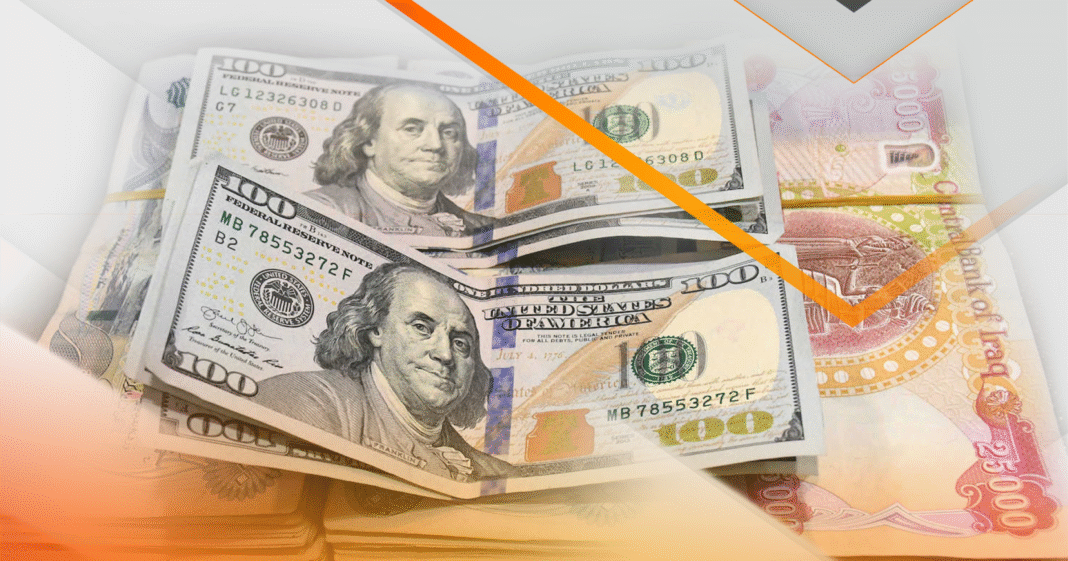Dollar prices rise in Iraq as both Baghdad and Erbil record an increase in exchange rates. The value of the US dollar climbed on Saturday, continuing a trend that affects daily transactions and currency trading across the country.
In Baghdad, activity at the Al-Kifah and Al-Harithiya stock exchanges showed clear movement. The opening rate reached 144,750 Iraqi dinars for every 100 US dollars. This marked an increase from Thursday’s closing rate of 144,550 dinars.
Currency exchange stores in Baghdad reported even higher selling prices. The rate hit 145,750 dinars for 100 dollars, while buying prices stood at 143,750. These differences between buying and selling rates reflect the market’s quick response to demand and supply changes.
Erbil also followed the same upward trend. Exchange shops in the Kurdish capital offered the dollar at 144,800 dinars for selling. Buyers could sell at a slightly lower rate of 144,350 dinars. This shows how closely northern markets track the capital’s financial shifts.
As dollar prices rise in Iraq, traders, citizens, and businesses must adapt. Higher dollar prices may impact imported goods and service costs, pushing overall expenses upward. This trend can also influence inflation and purchasing power, especially for goods priced in dollars.
Currency watchers link these fluctuations to various factors. These include global market shifts, local demand for the dollar, and regional trade patterns. In times of uncertainty, both businesses and individuals often turn to stable foreign currencies like the dollar.
The rising dollar value in Baghdad and Erbil signals investor caution and changing economic conditions. Exchange centers remain busy as people monitor prices and adjust spending or savings.
When dollar prices rise in Iraq, financial decisions become more urgent. Buyers rush to secure lower rates, while sellers wait for higher returns. This activity fuels more movement in the market.
If the trend continues, Iraq may see more effects on its local economy. Financial experts recommend close monitoring to prevent wider disruption. Policy responses might be needed to maintain currency balance.


